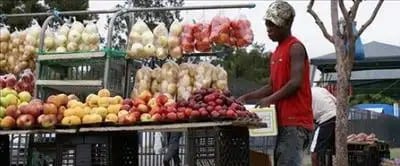Last updated on September 11th, 2021 at 02:54 pm
Recent concessions made by government to relax informal trading restrictions, amid a growing risk of coronavirus infection, highlights the precarious socio-economic situation of low paid workers – not to mention the enduring contradictions of managing an unequal society and economy in South Africa.
As the Covid-19 induced economic shutdown tightens its grip, many people must make an unenviable choice between earning a livelihood, or risk infection from the virus. Regrettably, the choice of action and inaction are both life-threatening.
This is a disheartening situation for any human being to put up with, and startlingly marks the plight of the forgotten and disenfranchised sections of our community.
Informal work or business, by its very nature, needs uninterrupted daily activity to generate an income – perhaps as does any other business – but the low incomes typically earned in this sector make people extremely vulnerable to work stoppages as they live from hand to mouth.
People in this sector do not have the privilege of legal employment contracts, insurance for loss of income or social security, social networks and saving buffers to protect themselves against unforeseen economic risks.
Their agitation to return to work is not an act of ignorance, as many have disparaged, but the desperation to support their families and survive.
This is especially crucial for families whose children are beneficiaries of the school feeding program – that has been a primary source of supplementary nutrition during schooling days.
South Africa and many of the African economies find themselves in this quandary owing to years of neglect and antagonising the informal sector, despite compelling evidence that it absorb millions of work seekers who cannot find jobs in the formal sector.
It is unsurprising that the Minister of Small Business Development, Khumbudzo Ntshavheni, has been battling to develop a suitable coronavirus relief package for workers and business operating in the informal sector, as she has swiftly done with the debt finance and business growth schemes for small businesses.
(Fin24)

